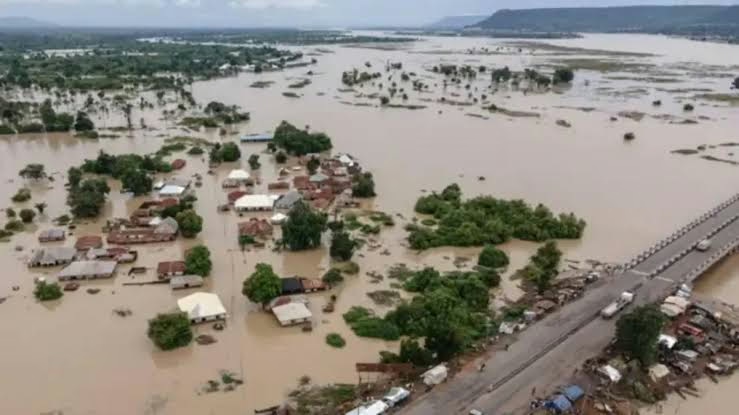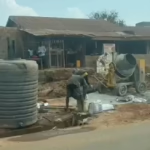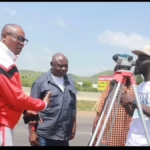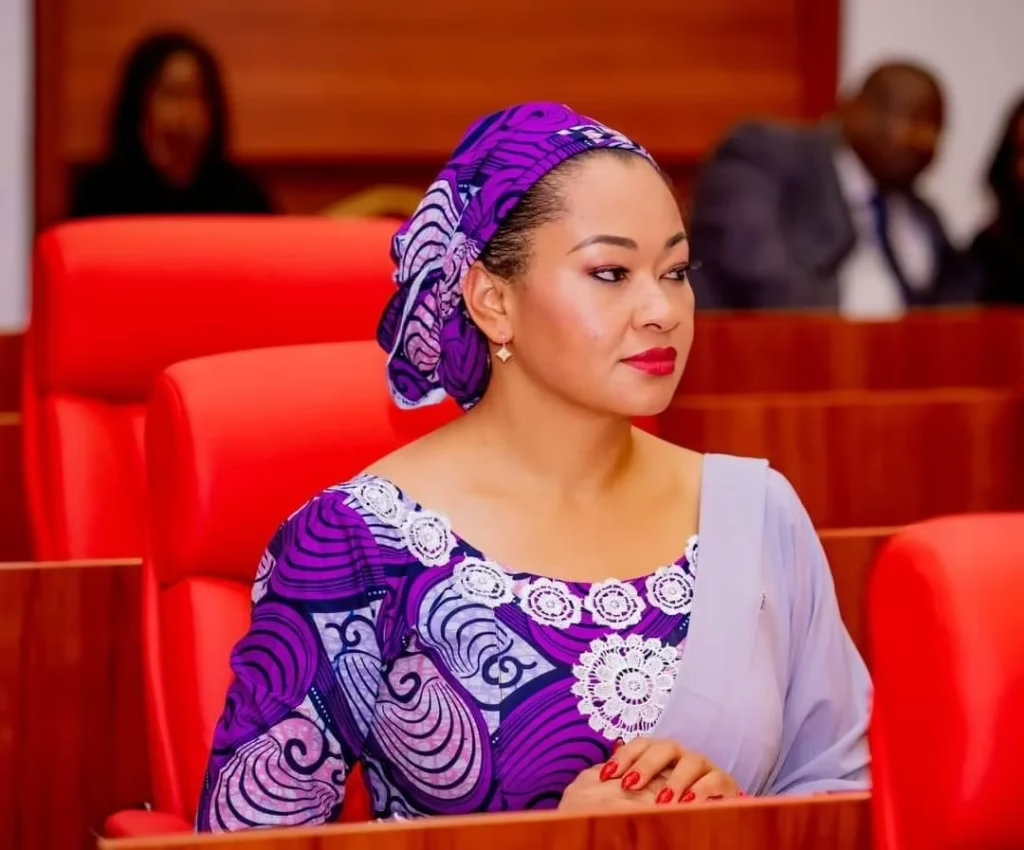Flooding has once again wreaked havoc across communities in Ogbaru Local Government Area of Anambra State, crippling economic activities, submerging farmlands, destroying homes, and rendering critical road networks impassable.
Triggered by persistent heavy rainfall and the rising water level of the River Niger, the flood has devastated key agrarian communities, leaving residents in deep anguish. The impact has been especially severe for local farmers, many of whom now face the harsh reality of premature harvesting and substantial financial losses.
From Ossomala to Obeagwe, Akili Ogidi, Ogwuikpele, Ogwuaniocha and several farm settlements, entire communities have been submerged, cutting off access routes and displacing families.
Over the weekend, the Constituency Office of Hon. Afam Ogene, the member representing Ogbaru Federal Constituency, led a team of journalists to the affected areas for an on-the-ground assessment of the disaster.
During the visit, distraught residents shared their ordeals.
Mr. Adimali Nwachukwu, a yam and cassava farmer in Ogwuikpele, expressed deep sorrow over the destruction of his livelihood.
“The flood has destroyed me. It has ruined my hopes and wasted my labour,” he lamented. “I borrowed money at high interest to go into large-scale farming this year. Now, with everything underwater, I don’t think I’ll recover even 25 percent of my investment. I’m finished. Where do I start again?”
Similarly, a widow and mother of three, Nwakaego Nwafili, who cultivates cassava and maize, tearfully described the toll the disaster has taken on her family.
“Since the heavy rains started in July, I’ve had sleepless nights. My entire farm is submerged, and I can’t afford to hire labourers to help with harvesting. I’m struggling to do it alone,” she said. “As a widow, farming is all I have to care for my children. This flood is killing us slowly.”
Another resident, Madam Oluchi Nzekwe, revealed that the stress from the flooding has severely impacted her husband’s health.
“My husband’s blood pressure has gone up. Farming is our only source of income, and now we’ve lost everything. Three of our children are in the university. We are proud of them, but this flood has thrown us into crisis. We can’t even access our land anymore,” she said.
The flood has also rendered major roads impassable, further isolating communities and compounding the residents’ suffering.
In response to the growing crisis, many in Ogbaru are appealing to the government for urgent intervention to salvage what is left of their homes and livelihoods.
Notably, in June 2025, the National Emergency Management Agency (NEMA), in collaboration with the Anambra State Emergency Management Agency (SEMA), had conducted a flood simulation and sensitization exercise in Ogbaru as part of a nationwide preparedness strategy.
Speaking during that event, NEMA’s Director-General, Mrs. Zubaida Umar, said the exercise was aimed at testing Nigeria’s readiness for anticipated flooding, improving coordination among agencies, and raising awareness in vulnerable areas.
“Today, we simulate a crisis so that we can better respond when the real one strikes. Preparedness saves lives,” she said. “Our ability to respond and recover depends largely on how well we plan and train together before disaster hits.”
She noted that Anambra, Abia, and Imo States were flagged as high-risk areas in the 2025 Seasonal Climate Prediction and Annual Flood Outlook issued by the Nigerian Meteorological Agency (NiMet).
Despite these preparations, residents say the scale of the current flood has overwhelmed them and are calling for immediate government relief efforts, including food, shelter, medical assistance, and long-term flood mitigation strategies.
As the rains continue and the River Niger swells further, the people of Ogbaru remain in distress, hoping their cries for help will not go unanswered.










Leave a Reply